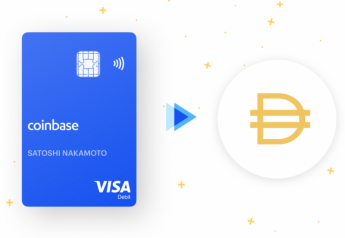The old rules no longer seem to apply to the millennial generation. Whether it is the nature of work, mounting student loans, or investment strategies- millennials have an entirely different plate from the previous generations.
Today, we are taking a small slice of how this generation of millennials in part with the PropTech innovations will impact the future of the real estate industry.
Our Today’s Real Estate Does Not Sit Well With Millennials

Our conventional real estate techniques have long gone outdated. For a long time, we have been trying to optimize the existing industry with current tools at hand instead of inventing new innovative ways to do so. The result is a highly exclusive, illiquid, and an inefficient industry with a hoard of other concerns.
It seems highly unlikely that the tech-savvy millennials would be willing to invest in this form of brick and mortar structures. Amidst the piling student debts, increase in the cost of living, and changing nature of work- the millennials are not intensely focussed on buying a home, much less for the purpose of investment.
Now, with a new innovation at hand, there is a better way to do things, the millennial way, in the real estate sector.
Welcome To a Tokenized Era
What if, instead of taking another loan to fit the needs of a house, you can invest in any real estate property with an extremely negligible amount?
What if, a millennial has the chance to get more and instant returns on a real estate asset instead of their traditional investments like stocks and bonds?
This is what tokenization in real estate presents and it checks all the right boxes of any millennial’s list. Simply put, tokenization enables digitalizing a real-world tradable asset such as a real estate property. Through smart contracts and blockchain, the concept of tokenizing a physical property is now possible. Moreover, blockchain enables this conversion of an asset into a token seamlessly and further helps driving value into an illiquid asset.
Let’s look at why millennials would be interested in this new way of real estate.
A Global Online Market

More than 90% of millennials own a smartphone and out of which 97% use active internet. Digital tokens are raised on a blockchain platform that represents shares of a greater real-world asset. These tokens are further traded on an international platform with the help of smartphones and the internet. Tokenization ensures that even intangible real estate assets can be as easily traded as stock market shares of an organization.
Accessible Investment
In the U.S. alone, millennials have more than $3 trillion debt in the form of student loans. They do not want to burden themselves with housing loans. However, tokenization allows them to buy shares (security tokens) of a real estate property. Furthermore, they can earn attractive returns of a real estate investment in the form of steady rental income or price appreciation of a property. This makes tokenization a much more accessible investment as compared to the traditional investment option in real estate.
Instant Liquidity
Another factor that has made real estate investment a distant affair for millennials is the lack of liquidity. Moreover, investment remains stuck in a brick and mortar structure before finding a suitable buyer that meets our needs on pricing. Tokenization enables the buying and selling of digital tokens on a secondary online platform that can instantly release liquidity out of an illiquid asset.
Growing Interest
Researches conducted in the last one year, all seem to indicate that millennials are increasingly looking at cryptocurrency as a favorable investment option in contrast to stocks, government bonds, and other traditional forms. Security tokens based on blockchain become even more attractive than utility cryptocurrencies owing to the fact that they represent an asset that has real value. This boosts the growing interest and makes tokenized real estate a much more interesting investment option than the conventional system.
The Onset of PropTech

PropTech is a convergence of fintech and real estate property. It is an upcoming trend that is likely to transform the real estate sector by innovating it with modern technological advancements. From smart buildings and advanced construction to transferring a property online- the PropTech industry is beginning to emerge in almost every process of the real estate industry.
In 2019, the PropTech market grew by a staggering 157% totaling to more than $24 billion. Furthermore, major organizations predict that in the upcoming years, this market is likely going to see an exponential market. Venture capitalists and institutional investors are now pouring millions of dollars in a number of innovations of PropTech.
One of which is tokenized real estate sector. Aside from institutional investors that look at it to diversify their real estate portfolio, retail investors would get a chance to invest in real estate through tokenization. By offering models of fractional ownership, tokenization would make the real estate sector more efficient, liquidated, transparent, and inclusive.
Tokenization is the Future In Real Estate
A concept like tokenization or blockchain represents what the internet did 25 years back. A relative few believed its potential while the majority called it a passing invention.
But, these concepts have already started to transform the real estate sector. In PropTech, which itself is predicted to rise exponentially, tokenization is one of the trends that is expected to receive a major boost in the upcoming decades.
Companies have already started developing solutions of tokenization not only in real estate but in a number of different sectors. In 2018, the market for security tokens rose to $442 million dollars. While, according to this research, the market for globalized tokenization is expected to reach $27 trillion by 2027.
The wave of tokenization has already begun. Millennials and the rising PropTech industry are two catalysts that will likely transform the schematics in the real estate industry.
 English
English  French
French 

